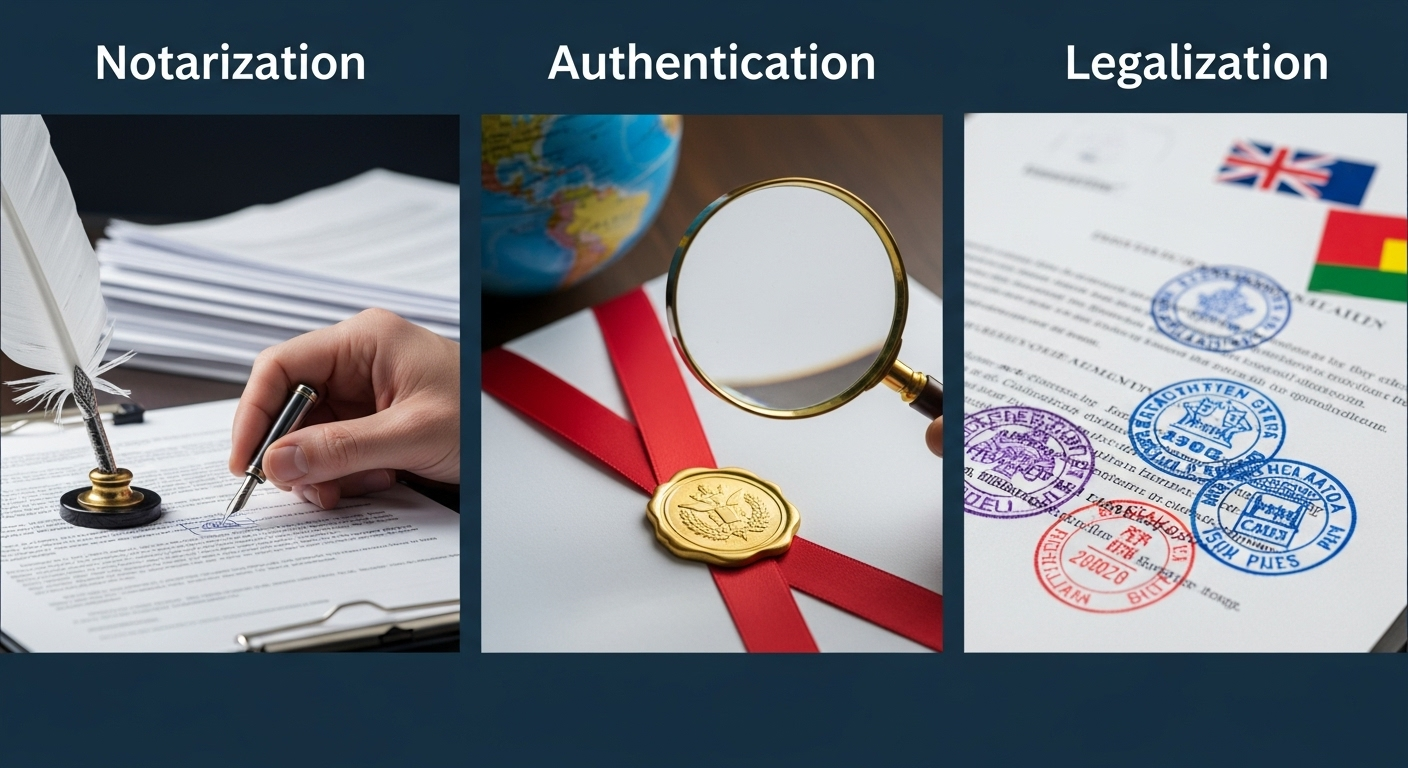
Understanding the Difference Between Notarization, Authentication, and Legalization
When preparing U.S. documents for official use in Kuwait, understanding the difference between notarization, authentication, and legalization is essential. Each step confirms the document’s validity and ensures that it will be officially recognized abroad. This guide explains the process clearly and outlines how the Kuwait Embassy in Washington, D.C., in coordination with the U.S. Arab Chamber of Commerce, assists applicants in completing it correctly.
What Is Notarization?
Notarization is the first step in verifying a document for legal or international use. It involves a Notary Public, an authorized official who confirms the signer’s identity and ensures the document is signed voluntarily.
Key Facts About Notarization:
Performed by a licensed Notary Public in the same state where the document originates.
Confirms the authenticity of the signature—not the content of the document.
Commonly required for affidavits, powers of attorney, and authorization letters.
Must be completed before any state or federal authentication can take place.
Example:
A Power of Attorney signed in Texas must first be notarized by a Texas Notary Public before it can move forward for authentication and legalization.
What Is Authentication?
Once a document has been notarized, the next step is authentication.
Authentication verifies the authority of the notary or issuing official’s signature and seal. This step is usually performed by the Secretary of State or, in some cases, the U.S. Department of State.
State Authentication
Conducted by the Secretary of State in the document’s state of origin.
Confirms that the notary public or government official is properly registered.
Required for documents such as birth certificates, educational degrees, or notarized legal forms.
Federal Authentication
Required for federally issued documents such as FDA, FBI, or USDA certificates.
Completed by the U.S. Department of State, Office of Authentications, in Washington, D.C.
Example:
An FBI background check must be authenticated by the U.S. Department of State before it can be legalized by the Embassy of Kuwait.
What Is Legalization?
Legalization is the final step that makes your U.S. document valid for use in Kuwait.
It is performed by the Embassy of Kuwait in Washington, D.C., after all previous authentications have been completed.
Purpose of Legalization:
Verifies the authenticity of the previous certifications.
Confirms that the document meets Kuwaiti government requirements.
Makes the document officially recognized for legal, educational, or commercial purposes in Kuwait.
Example:
A university diploma, once authenticated by the Secretary of State and the U.S. Department of State, must then be legalized by the Kuwait Embassy to be accepted for employment or residency in Kuwait.
Step-by-Step Overview
Why These Steps Are Important
Legal Validity: Without all three steps, U.S. documents are not recognized in Kuwait.
Compliance: Following the correct order avoids rejection or processing delays.
Official Recognition: Properly legalized documents are accepted by Kuwaiti government offices, employers, and institutions.
Assistance with the Process
The Kuwait Embassy in Washington, D.C. facilitates the legalization of U.S. documents for official use in Kuwait.
In cooperation with the U.S. Arab Chamber of Commerce, applicants can complete each stage—state or federal authentication and embassy legalization—efficiently and accurately.
Services include:
Guidance on document requirements.
Secure submission to the appropriate authorities.
Embassy certification for all types of U.S. personal, business, or educational documents.
